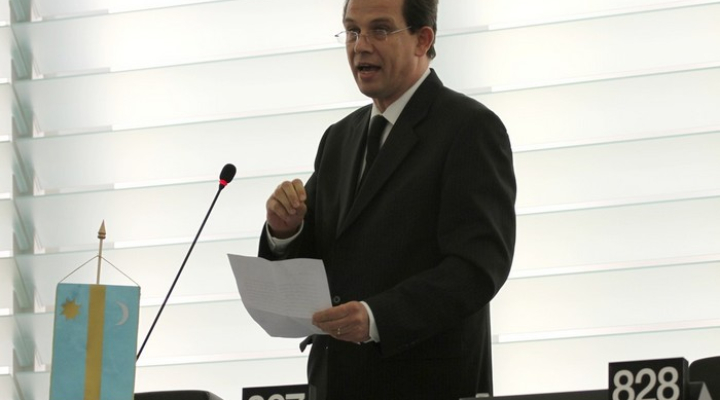Europe-wide legal framework for copyright laws in musical work
During its Strasbourg plenary session of 4 February the European Parliament voted on the Europe-wide alignment of copyright laws in musical works. The aim of the directive is to simplify the cross border licensing of online musical works and to make the online music market more transparent.
The rapporteur of the document, Marielle Gallo (France, European People’s Party) sees the alignment of copyright laws for online musical work as a promising growth and job-creating instrument. RMDSZ MEP Csaba Sógor also took part in the debate of the report, analysing the document from a consumer protection perspective.
In the opinion of the Transylvanian MEP the enforcement of copyright laws in the digital era will be a lot easier with an EU-wide legal framework. The MEP also expects that the new rules will ease the multi-territorial licensing by collective management organisations of authors’ rights in musical works for online use.
Csaba Sógor welcomed another initiative of the European Commission (EC), a survey regarding copyright issues, conducted in December. The MEP mentioned that although the questions in the survey were too general, the EC should allocate more time to analyzing the results.
The MEPs speech can be viewed and read below:
http://www.europarl.europa.eu/sides/getVod.do?mode=unit&language=EN&vodId=1391502152199
"I am convinced that this directive will improve the functioning of the online music market and that it will also help make things easier for digital production. 260 e-operators are working within the EU at the moment, and 30 million people are using these services online.
The purpose of this directive is to create multi territorial licensing, and I think that this way the functioning of the whole system will become more transparent. This development will be beneficial for both consumers and copyright holders, who will be able to enjoy greater legal certainty over the monetary benefits they are entitled to.
However, I wonder why the EU waited so long to start the consultation on copyright issues. And even if it started so late, I believe there is no point in analysing data too quickly.
There are general questions that arise, that we need to discuss thoroughly. The 80 questions of the survey were too general and did not focus on the problems at hand, so I wonder whether it would be possible for us to restructure this process and devote the necessary time for the analysis of these fundamental issues before threading into this sensitive subject area.”
In the opinion of the Transylvanian MEP the enforcement of copyright laws in the digital era will be a lot easier with an EU-wide legal framework. The MEP also expects that the new rules will ease the multi-territorial licensing by collective management organisations of authors’ rights in musical works for online use.
Csaba Sógor welcomed another initiative of the European Commission (EC), a survey regarding copyright issues, conducted in December. The MEP mentioned that although the questions in the survey were too general, the EC should allocate more time to analyzing the results.
The MEPs speech can be viewed and read below:
http://www.europarl.europa.eu/sides/getVod.do?mode=unit&language=EN&vodId=1391502152199
"I am convinced that this directive will improve the functioning of the online music market and that it will also help make things easier for digital production. 260 e-operators are working within the EU at the moment, and 30 million people are using these services online.
The purpose of this directive is to create multi territorial licensing, and I think that this way the functioning of the whole system will become more transparent. This development will be beneficial for both consumers and copyright holders, who will be able to enjoy greater legal certainty over the monetary benefits they are entitled to.
However, I wonder why the EU waited so long to start the consultation on copyright issues. And even if it started so late, I believe there is no point in analysing data too quickly.
There are general questions that arise, that we need to discuss thoroughly. The 80 questions of the survey were too general and did not focus on the problems at hand, so I wonder whether it would be possible for us to restructure this process and devote the necessary time for the analysis of these fundamental issues before threading into this sensitive subject area.”











